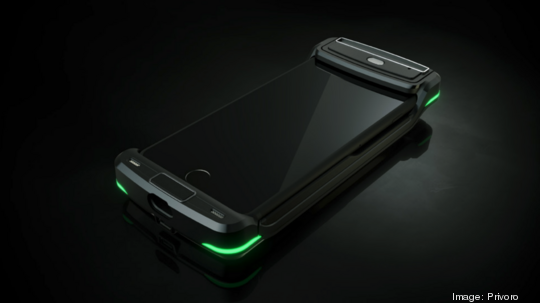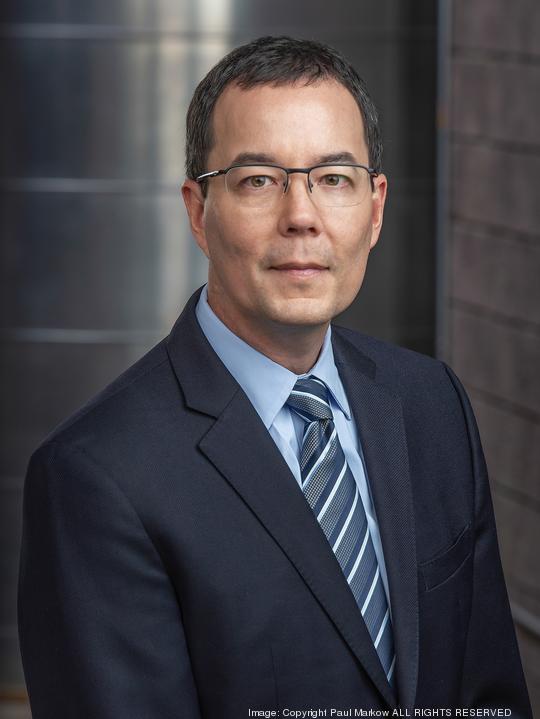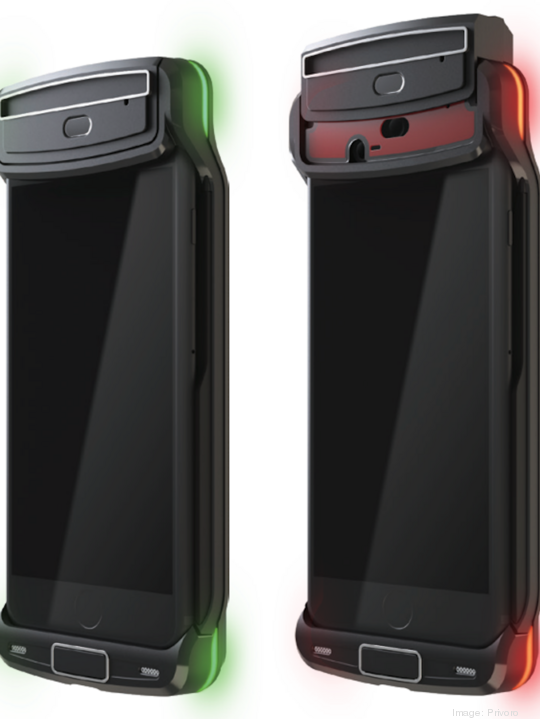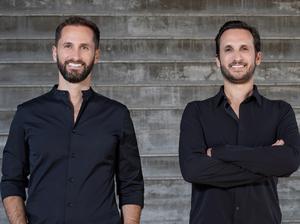
Privoro, a Chandler startup that makes mobile security devices and software, announced on Wednesday that it raised $30 million in series B financing to help further develop the company’s tech and grow its team. The funding was led by an affiliate of New York City-based Tracker Capital Management LLC.
Privoro makes a high-security phone case that blocks intrusion with software and physical tools. The company was founded in 2013 by Mike Fong, a longtime Valley resident. Fong previously founded Calence, a networking integrator company that grew to $300 million in annual sales before it was acquired by Insight Enterprises in 2008.
Fong said he took a little time off after the Calence exit, but it didn’t take long for him to get the entrepreneurial itch again. When planning his next move, Fong said he considered macroeconomic trends and zeroed in on the fact that many companies rely on big data collection, which gave him pause.

“Nothing is going to stop this tidal wave of data collection,” he said. “To me, whether you're an individual, a business or government, you should be able to protect and control your data and your sensitive information.”
That impulse to protect against unwanted data collection led him to found Privoro in 2013. He then spent years developing a device that would better protect phones, because most people carry them all day and they are full of sensitive information, a dream target for hackers.
Privoro originally aimed to sell its cases to consumers (size, weight and price were issues), but has since pivoted to selling to the government, which has a dire need to secure its devices.
“Government found us, they brought us to D.C. and we started winning contract after contract, because we didn't need to convince them that phones could be hacked,” he said. “In fact, they were so aware of it, they were banning phones from a lot of their facilities for the national security risk.”
Thwarting hackers
Hackers can get into a mobile phone and turn on its microphone without detection, but when strapped on a cell phone, the Privoro SafeCase physically blocks a phone’s camera and actively mutes its microphones to thwart audio or video surveillance efforts. The devices also link to a central software for administrators to monitor cases status. The case does not help the phone make encrypted calls or charge it.
Fong said that many government agencies have historically asked people to leave their personal cell phones in their cars or at secure desks during the day, but being away from a cell phone all day is increasingly untenable when people miss calls from their families during the workday.
Additionally, mobile phones can help improve the way people do their work, but the government can’t take advantage of boosted productivity if phones are not secure.

“If the government wants to take advantage of capabilities like 5G, and what that will enable, how do you do that if the devices that enable it are banned from the workplace, right?” he said. “The government really wants to solve this issue for many, many reasons.”
The SafeCase was recently approved for use in classified facilities by the National Telecommunications Security Working Group (NTSWG), a government team that establishes security standards for the U.S. Intelligence Community.
The company also has a newer product called the Vault, which is a small Faraday case that completely encloses a phone and blocks it from sending or receiving RF signals, essentially taking it off the grid while enclosed.
Privoro is primarily serving government customers at the moment, but Fong said there’s potential to make devices for tablets, to work with more private businesses and, perhaps one day, get back to making a product aimed at individual consumers.
Fong said the company currently has about 50 employees, many of whom are Arizona State University and University of Arizona graduates, and that the new funding will help Privoro grow its headcount even more.
As part of the funding round, Louis Bremer, senior managing director of Tracker Capital, and Daniel Goldin, senior advisor to Tracker Capital, have joined Privoro's board of directors. Goldin was previously the longest tenured NASA administrator and connections like that, Fong said, are a big reason the company partnered with Tracker for the financing.
"Within the national security community, the use of commercial smartphones has long been viewed more as an operational vulnerability than a tool for driving mission success," Tracker’s Bremer said in a statement. "We believe that Privoro's current and future products will change this paradigm and in so doing unleash an exciting new era of secure mobility.”










